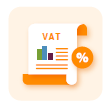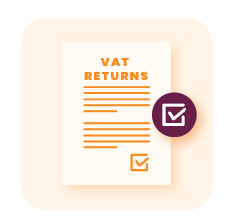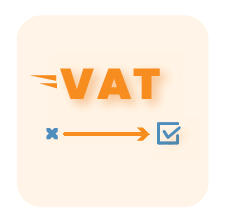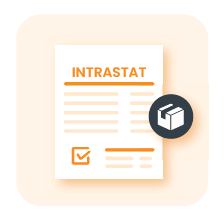VAT in Estonia
The Value-Added Tax (VAT) system in Estonia is governed by the VAT Act, also known as (Käibemaksuseadus), Law No. RTI 2003,82,554. This law has been in force since 1 May 2004 or later.
In Estonia, as in other EU member states, Value-Added Tax (VAT) legislation has been harmonized to a significant extent. This harmonization is based mainly on EU directives, with the key directive being the EU VAT Directive 2006/112/EC.
Everything you need to know about VAT registration, returns, Tax Representation (if applicable), and your legal duties in Estonia is conveniently located right here!
Selling in Estonia?
Scope of Taxation
The EU VAT system is built on two fundamental principles: firstly, VAT is a consumption tax that applies to most types of consumption. Secondly, VAT aims to ensure fiscal neutrality. Given its status as a general consumption tax, VAT exemptions are typically limited and interpreted strictly.
According to Section 1 of the Estonian VAT Act, the following transactions are generally subject to Value-Added Tax (VAT):
- Supplies of goods and services that are produced in Estonia, with the exception of supplies that are exempt from tax.
- Importation of goods into Estonia, except for those imports that are exempt from tax as per Section 17 of the VAT Act.
- Provision of services when the place of supply is outside of Estonia, except for services that are exempt from tax.
- Intra-Community acquisitions of goods, except for those that are exempt from tax under Section 18 of the VAT Act.
Download the Estonian VAT Guide
Estonia – General VAT information
| Tax authority | Estonian Tax and Customs Board |
| VAT in local language | Käibemaks |
| Currency | € Euro |
| VAT number format | EE + 9 characters |
| EE123456789 | |
| VAT rates
|
Standard 20%; Reduced 9% and 5%; |
| Zero-rated (0%) and exempt | |
| Thresholds | |
| Registration | |
| Established | EUR 40,000 |
| Non-established | None |
| Intra-EU Distance sales and electronically supplied services to consumers (OSS) | EUR 10,000 |
| VAT Group | Allowed – If a single individual or a group of related individuals owns over 50% of the shares or voting rights in both companies |
| Voluntary Registration | Available- not mandatory |
| Intra-EU Dispatches | EUR 230,000 |
| Intra-EU Arrivals | EUR 130,000 |
| Recovery of VAT by non-established businesses | Yes |
| Compliance Returns and Deadlines | |
| VAT Returns | 20th day of the month following the taxable period |
| Frequency | Monthly |
| European Sales Listing | 20th day of the month following the end of the period |
| Intrastat | 10th day of the month following the end of the filing period |
| Electronic Invoicing | While electronic invoicing is not obligatory for businesses in Estonia, it is mandatory for B2G (business-to-government) transactions |
Last Updated: 30/10/2023
Disclaimer
The information provided by Global VAT Compliance B.V. on this webpage is intended for general informational purposes only. Global VAT Compliance B.V. is not responsible for the accuracy of the information on these pages, and cannot be held liable for claims or losses deriving from the use of this information. If you wish to receive VAT related information please contact our experts at support@gvc.tax








